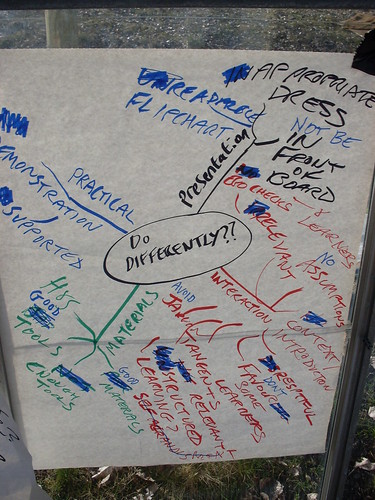To learn from the past, we need to reflect on the past, and questions are crucial for prompting reflection.
 When you observe the conversations and presentations at conferences and in organisations, they are very often stories about the past.
When you observe the conversations and presentations at conferences and in organisations, they are very often stories about the past."We did this, we did that, this happened, we met these obstacles and through perseverance we achieved success"
It is possible to learn from these stories in a general sense, but often these stories are narrative and not reflective, and it is from the reflection that knowledge arises.
The question "If you were to do this again, what would you do differently next time" is an excellent question to provoke reflection. It is a question that we use all the time in After Action Review and Retrospect, but it is one that you otherwise rarely hear at work, and almost never hear raised at conferences.
Many times people at work, or people at a conference, would ask each other “what did you do, how did you do X, how did you respond to Y”, and what they would get in reply would be, effectively, history. The replies would help you understand what the team did, but not understand whether this is a good thing to do, and bad thing to do or a random thing to do.
But if someone is asked “what would you do differently”, you can't answer with history; you have to answer with analysis and with insights.
The progression from Observations ("What we did and what happened") to Insights ("This is why things happened he way they did") to Lessons ("This is what I would do next time") is a process of analysis, and needs t be driven by questions - either questions from a facilitator or a third party, or by self-questioning.




No comments:
Post a Comment